Knock on Any Door (1949)
“Look, he’s a bad, weak kid!”
|
Synopsis: |
|
Genres, Themes, Actors, and Directors:
Response to Peary’s Review: He notes that “it’s hard not to be on Bogart’s side, especially since the DA is a corrupt, vicious man with an ugly scar, played with extreme villainy by George Macready”: — but “it’s weird seeing this socially conscious lawyer browbeat some of the indigent witnesses”, and “Derek’s character [Nick Romano], whose motto is ‘live fast, die young, and have a good-looking corpse’: is too unpleasant to be used as an example by Bogart (or Ray) to arouse sympathy for real-life juveniles who are trapped by poverty and bad reputations into committing crimes.” I’m in agreement with Peary’s assessment of this well-meaning flick, which nonetheless misses the mark in several key ways. Bogart’s character isn’t really solidified: all we know is that he came from a rough background himself and is being pressured by a couple of beautiful women to take Derek’s case — against the wishes of his firm. Meanwhile, “pretty boy” Derek’s background and challenges don’t seem particularly noteworthy — though I suppose that’s the point; as Bogart’s character intones near the end:
Speaking of the ending, I’m not a fan of the surprise twist — but I won’t say more at risk of spoiling. On the plus side, Burnett Guffey’s cinematography is solidly atmospheric throughout; Macready’s supporting performance is notable (check out his scar stroking); and Allene Roberts is sweet and sympathetic as Derek’s young wife. Redeeming Qualities and Moments: Must See? Links: |
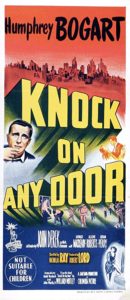
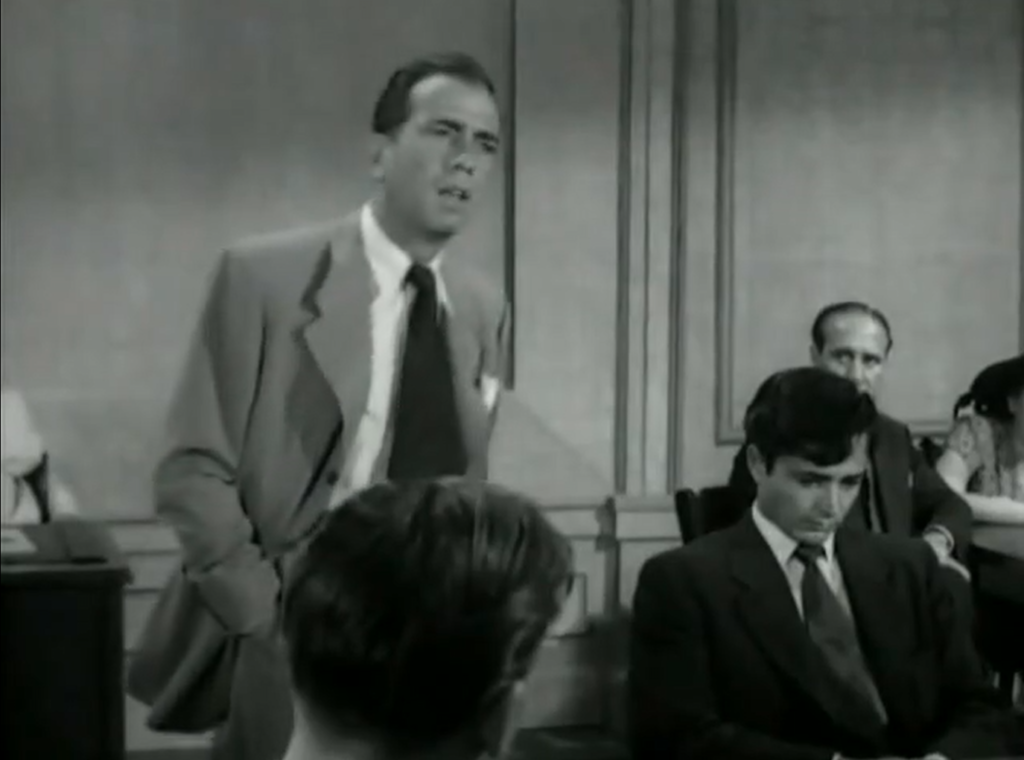
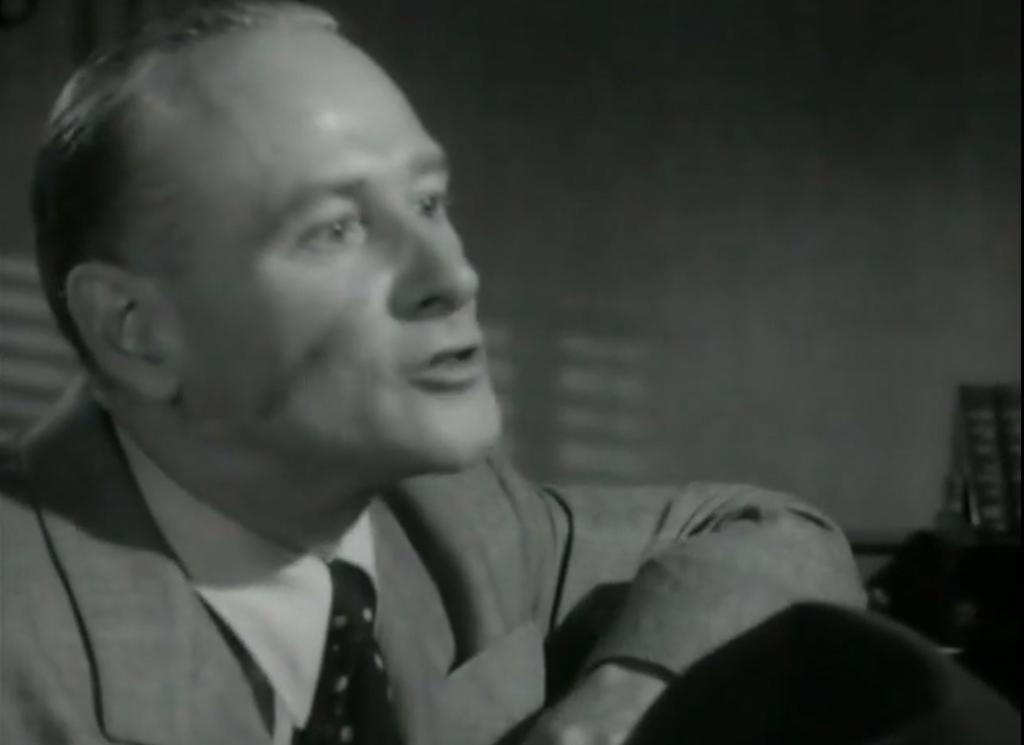
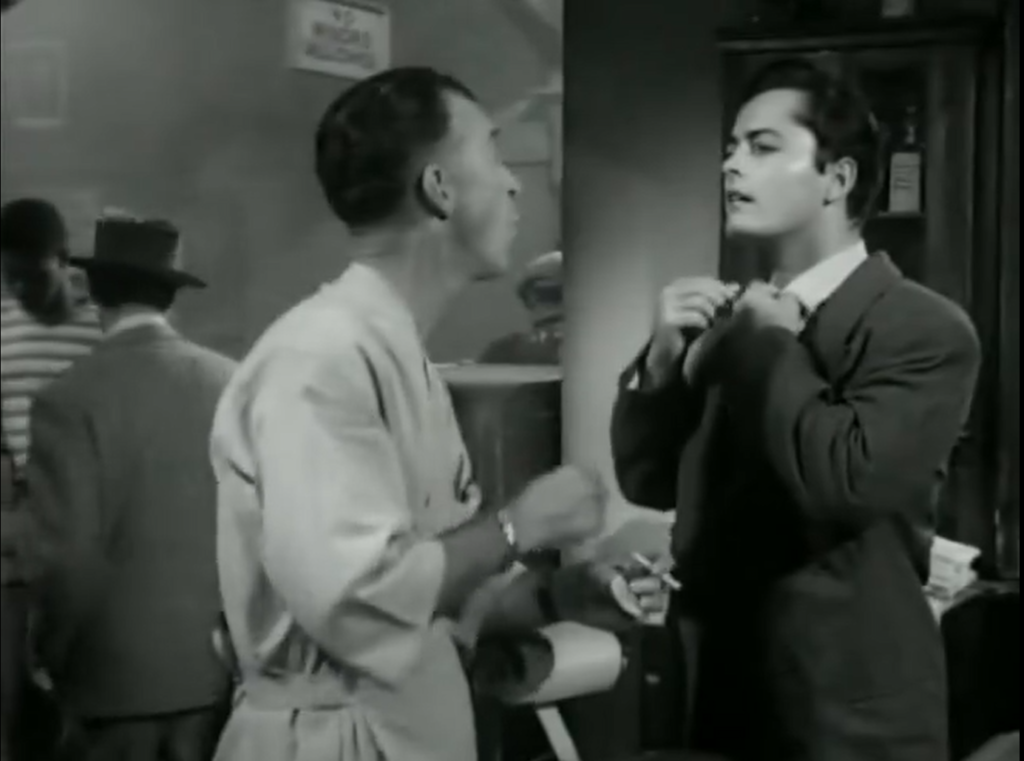
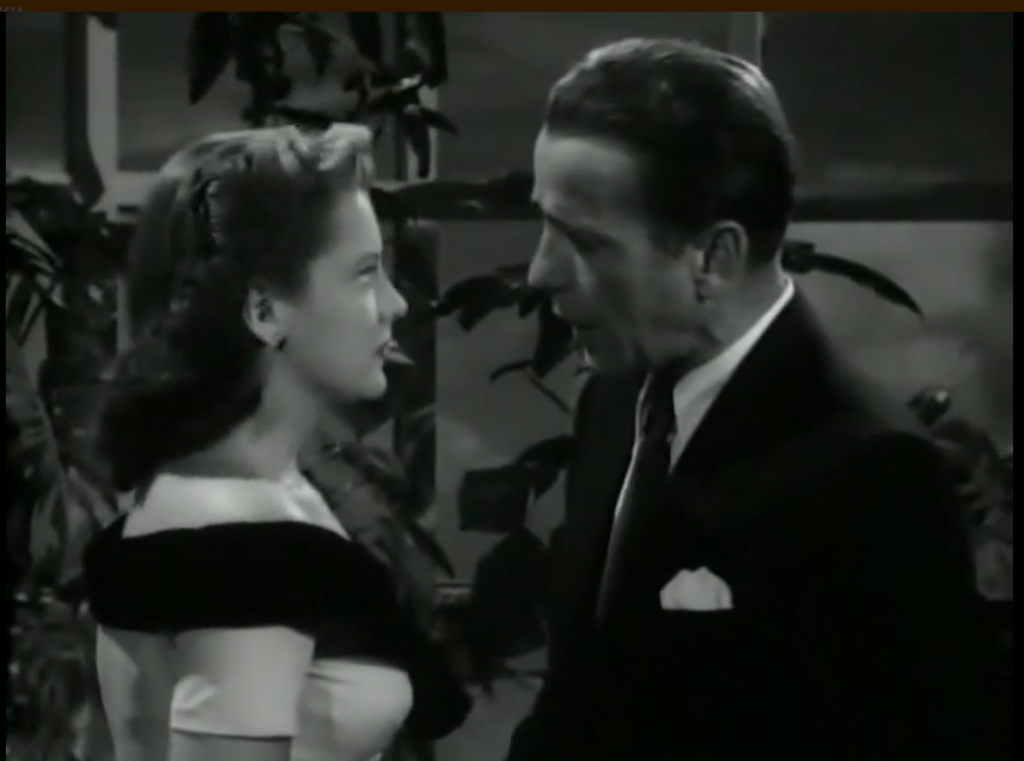
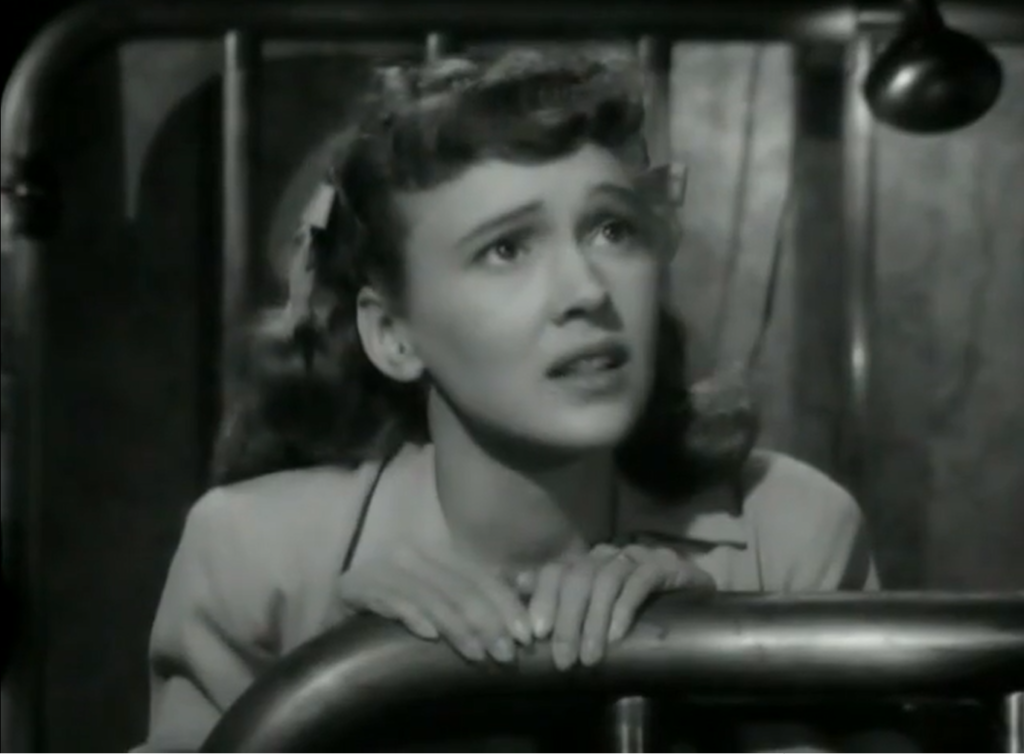
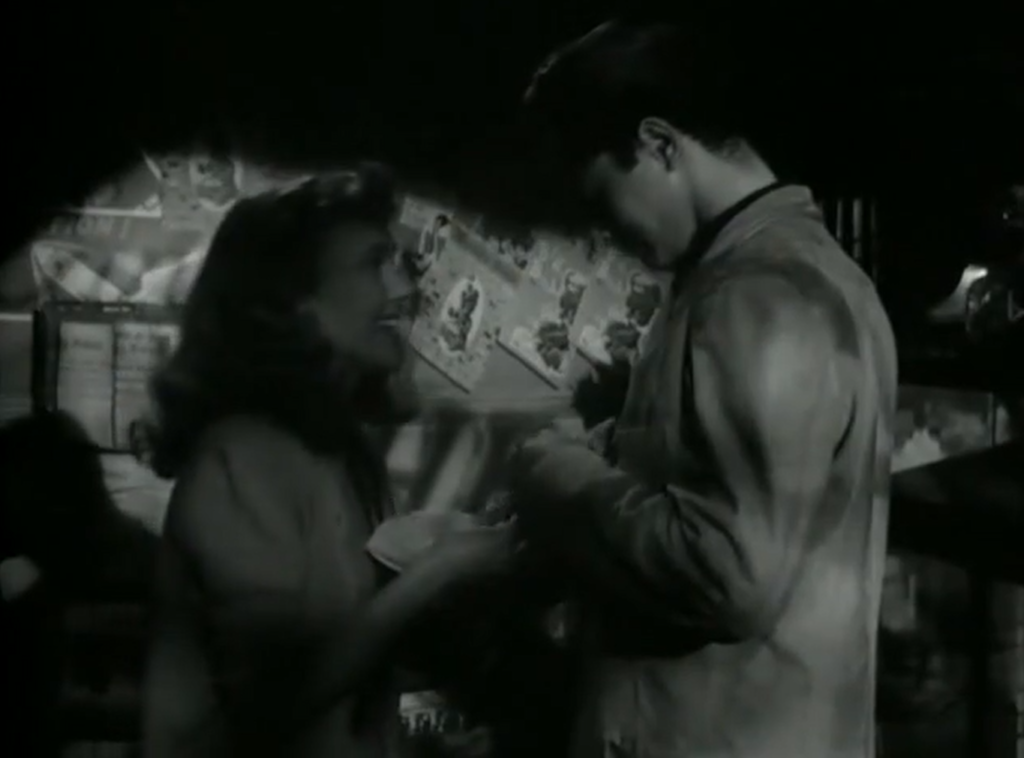
One thought on “Knock on Any Door (1949)”
Agreed – not must-see, and in agreement with what’s already been said.
It’s particularly true that Derek’s character “is too unpleasant to be used as an example by Bogart (or Ray) to arouse sympathy for real-life juveniles who are trapped by poverty and bad reputations into committing crimes.” Derek’s Nick is portrayed as almost being psychotic – or, at the very least, manipulative and duplicitous in ways that he doesn’t feel the need to be at all circumspect about.
In a number of instances, he does non-criminal things he shouldn’t do in the first place – then gets hot-headed (he has a real leaning towards being hot-headed) when he’s called on for them. We never really see him making that much of an effort to take responsibility for his own actions.
That alone makes this a very tough call as a courtroom drama. Bogart makes what’s meant to be a very persuasive closing statement during the trial – saying how much society is responsible for a boy like Nick. He doesn’t add anything about how *Nick* is responsible for a boy like Nick. To hear Bogart talk here, you would think that everything would be great if we lived in a world in which everybody respected everybody else and everybody gave everybody else a break in life every time everybody turned around.
Yes, wouldn’t it be lovely if we lived in a perfect world in which everybody was lovely to each other? But, alas, we can’t wipe the world clean of all of its awful elements. We can’t rid the world of all of the slums – unless maybe we wiped out corporate greed (for one thing) and good luck with that!
~which is not to say that Bogart’s sentiment should be disregarded as hopelessly naive. There is a force of good in the world (thank God) and efforts are also made to help those who can’t help themselves better themselves.
But the unfortunate thing about a movie like this is… when Bogart is speaking to the jury, the intent is to speak to the people watching the movie. And, since that’s the case, and considering the kinds of people who are most likely to watch a movie like this… he’s preaching mostly to the choir in reference to social ills. It’s not so much the average people who run a society down, but the more sordid elements operating (sometimes all too efficiently) within it.